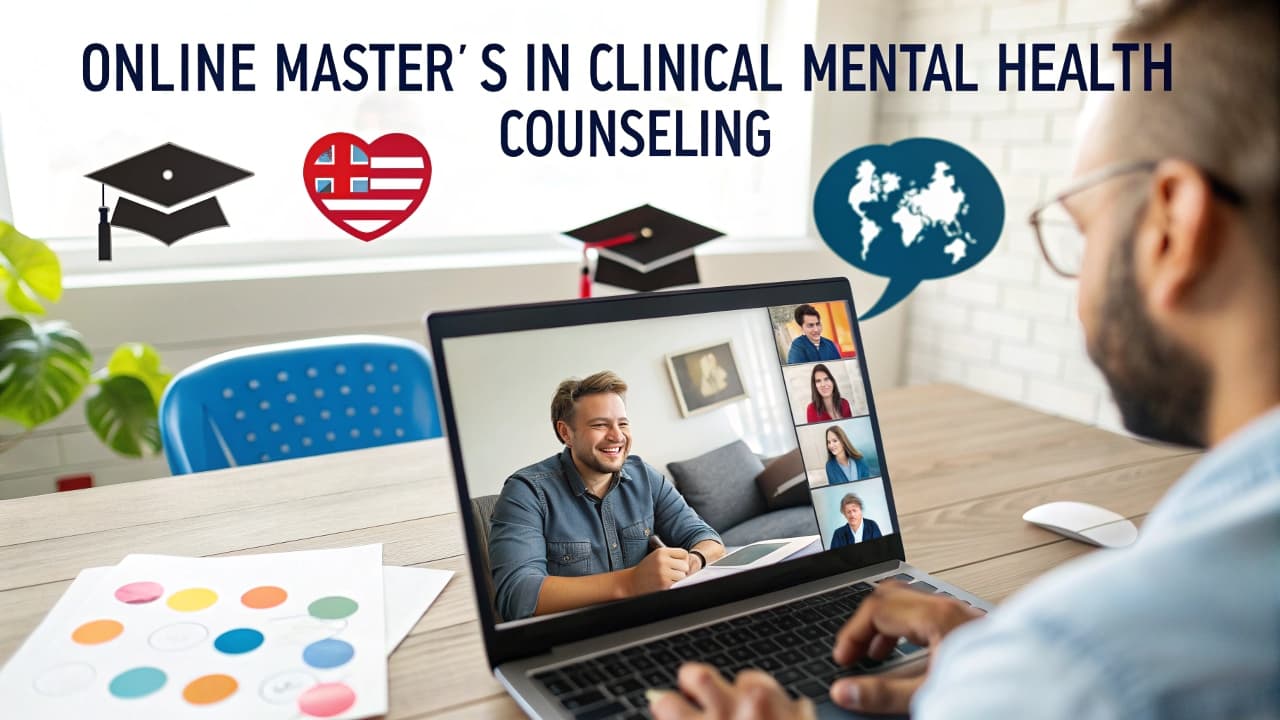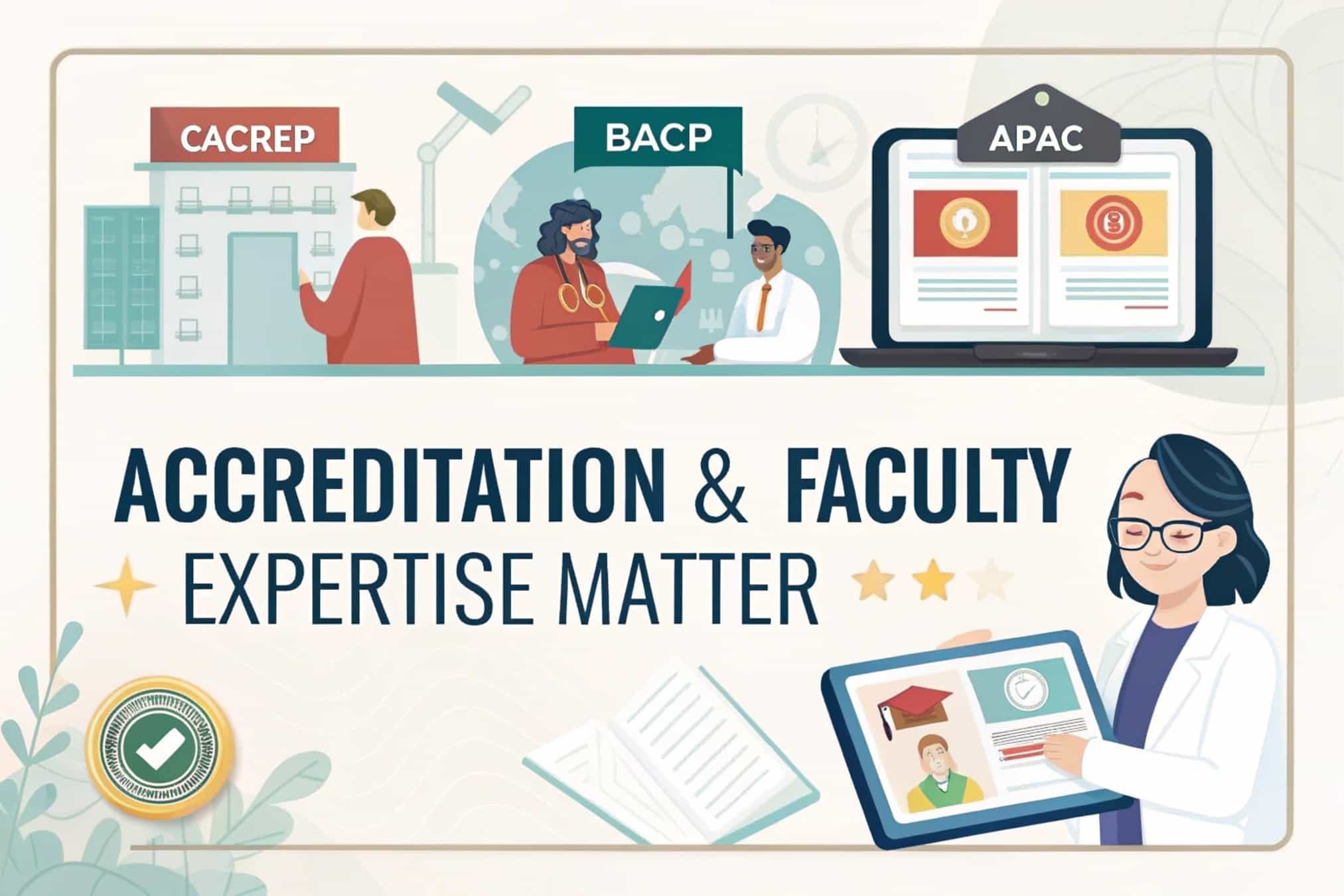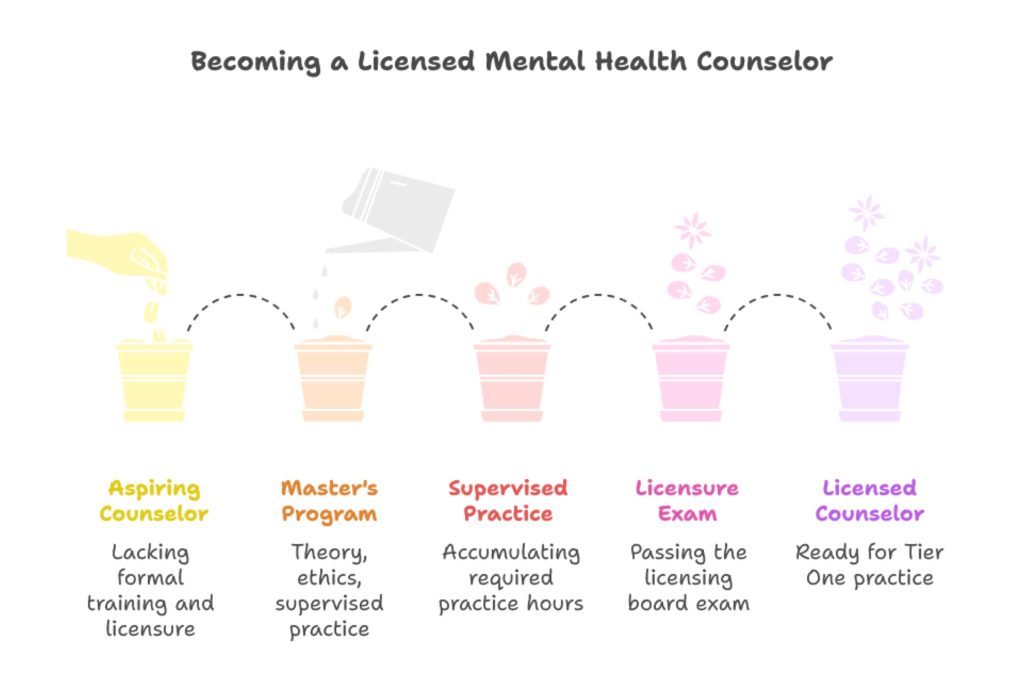Mental Health Counseling 2025 marks a pivotal moment in the global mental health landscape. With rising awareness, technological innovation, and increased investment in mental health services, Tier One countries such as the USA, UK, Canada, and Australia are experiencing unprecedented demand for licensed counselors. This growing need is creating exciting career opportunities for professionals who are ready to lead in clinical, community, and digital mental health settings. Pursuing advanced education and credentials now positions aspiring counselors at the forefront of a rapidly evolving industry.
In the past, pursuing such a degree meant long commutes, inflexible schedules, and limited access to faculty experts. Today, with online programs, working professionals and new graduates alike can access high-quality, accredited curricula while balancing career and personal responsibilities. Imagine studying from home while learning from seasoned faculty with real-world counseling experience, attending virtual internships with global healthcare organizations, and leveraging program-specific networking opportunities.
For professionals in Tier One countries, this degree delivers unmatched ROI. Counselors with master’s credentials often enjoy a salary premium of 30–50% compared to those with only bachelor’s degrees. Beyond salary, the degree enables private practice licensing, enterprise-level credibility, and specialized roles in psychoanalysis, trauma therapy, or school counseling. Most importantly, graduates are equipped to meet rising mental health needs with compassion and evidence-based skills.
Key takeaway: An online Master’s in Clinical Mental Health Counseling is not just an education—it’s an investment into future-proofing your career, improving ROI, and making a measurable social impact. Explore more details here →

Best Mental Health Counseling 2025: A Smart Investment for Tier One Professionals.
Choosing to invest in an advanced degree requires weighing both tangible and intangible returns. For Tier One professionals in the USA, UK, Canada, and Australia, the ROI of an online Master’s in Clinical Mental Health Counseling is measurable.
First, the demand: According to US Bureau of Labor Statistics data, employment of mental health counselors is projected to grow by 18% through 2032—far outpacing the national average. In Canada and the UK, workforce surveys reveal similar trends, with a rising emphasis on integrating counselors into primary care and community health initiatives. Australia’s Health Workforce Report also identifies clinical counseling as a critical shortage area, leading to government-backed incentives for new graduates.
Second, the earnings: A licensed clinical mental health counselor in the US earns between $55,000 and $85,000 annually, with private practitioners and enterprise consultants often crossing six figures. In the UK, NHS Band 6–7 counselors earn competitive salaries, and in Canada and Australia, private practice and government-funded programs provide strong earning potential.
Third, the flexibility: Online master’s programs allow learners to continue full-time work while studying. This hybrid model ensures professionals don’t lose income during education. Moreover, online graduates often report higher levels of digital literacy and adaptability—skills directly transferable to teletherapy platforms and enterprise counseling roles.
| Country | Average Annual Salary (Licensed Counselor) | Projected Growth | ROI Potential |
| USA | $55,000–$85,000+ | +18% by 2032 | High |
| UK | £40,000–£65,000 (NHS & private) | +14% by 2030 | High |
| Canada | CAD $60,000–$95,000 | +15% by 2031 | High |
| Australia | AUD $70,000–$100,000+ | +17% by 2032 | Very High |
Key tip: If you’re a working professional in Tier One countries, an online master’s offers the chance to study without pausing your income stream, making it a smart career move.
Career Growth and High-Paying Jobs with a Mental Health Counseling.
Earning an online master’s degree doesn’t just qualify you for counseling—it positions you for leadership and specialization. Graduates in Tier One markets can step into roles such as:
- Licensed Professional Counselor (LPC) – delivering individual and group therapy.
- Clinical Supervisor – guiding early-career counselors within healthcare organizations.
- Trauma-Informed Specialist – in hospitals, schools, or NGOs.
- Corporate Wellness Consultant – advising enterprises on employee mental health strategies.
- Psychoanalyst or CBT Specialist – for niche private practices.
Case study: Sarah M., a UK-based graduate of an online master’s program, transitioned from a school guidance counselor to a licensed clinical mental health counselor within the NHS. After completing her program online, she qualified for Band 7 salary brackets—boosting her income by nearly 40%.
Micro-CTA: Looking for high-paying, high-impact careers? Start your journey with a master’s that pays dividends in both income and purpose.
Faculty Experts and Accredited Counseling Programs for Global Trust
Accreditation and faculty expertise are critical for ROI-driven outcomes. In the USA, CACREP accreditation ensures your program meets industry standards. In the UK, BACP-approved programs dominate the market. Canada requires recognition by provincial boards, while Australia’s APAC accreditation is essential.
Faculty credentials often determine the depth of learning. Online programs led by practicing clinicians and published researchers ensure you’re learning actionable skills, not just theory. For example, programs at Walden University (US) and University of Derby (UK) highlight faculty who actively consult with hospitals, publish in peer-reviewed journals, and supervise clinical residencies.
Trust matters: Employers across Tier One markets seek graduates from accredited institutions. Without accreditation, your degree may not qualify you for licensing exams.
Key result: Always verify accreditation before enrolling. Explore more details here →

Specialization Courses in Clinical Mental Health Counseling that Boost ROI and Lead Generation
Specializations amplify ROI by opening niche markets. Online master’s programs often include electives such as:
- Substance Abuse Counseling
- Marriage & Family Therapy
- Trauma and Crisis Counseling
- Child & Adolescent Development
- Psychoanalysis
Table:
| Specialization | Demand in Tier One Markets | Average ROI |
| Trauma Therapy | High in post-pandemic era | 1.5x salary premium |
| Family Therapy | High in USA, Australia | Strong client base |
| Psychoanalysis | Rising in UK, Canada | Enterprise consulting opportunities |
Expert insight: Dr. Helen Rivera (Walden University) notes, “Specializations make graduates stand out. A counselor with trauma expertise often commands higher salaries and sees faster practice growth.”
Takeaway: Choose a specialization aligned with local demand to maximize income and career satisfaction.
Why Study Psychoanalysis? Insights for Tier One Decision-Makers
Psychoanalysis, once considered niche, is resurging in Tier One markets. The rise of anxiety and trauma-related disorders has led organizations and private practices to revisit depth-oriented therapeutic models.
Pros:
- Long-term client engagement = stable ROI.
- Enterprise trust in psychoanalytic frameworks.
- High conversion potential in private practice.
Cons:
- Longer treatment models may limit quick turnover.
- Requires additional certification in some countries.
Mini case: In Canada, psychoanalysts in private practice report client retention rates 35% higher than CBT-only counselors. This translates into steadier income and higher lifetime ROI per client.
Key tip: Psychoanalysis is not only academically enriching but also a high-trust credential in competitive counseling markets.
What is an Online Master’s in Clinical Mental Health Counseling Degree and Why It Matters for Growth?
This degree equips graduates with the theory, ethics, and supervised practice hours needed for licensure. Unlike short certificates, a master’s is the recognized entry point for Tier One licensing boards.
The curriculum blends:
- Core counseling theories.
- Supervised practicums.
- Ethics and multicultural competency.
- Research and data analysis for evidence-based practice.
Growth impact: Without a master’s, professionals cannot open private practices or qualify for reimbursement from insurers. In the USA, for instance, LPC licensure requires a 60-credit-hour master’s degree plus supervised clinical experience.
Takeaway: For career growth, an online master’s is not optional—it’s the gold standard.

Continuing Education for Psychoanalysts – Checklist for Long-Term Career Success
- ✔ Maintain licensure with ongoing CE credits (20–40 hours annually).
- ✔ Join professional associations (APA, BACP, CCPA, PACFA).
- ✔ Publish or present case studies to enhance enterprise trust.
- ✔ Attend global conferences to stay updated with Tier One standards.
Micro-CTA: Think long term. Continuing education ensures credibility, higher ROI, and lifelong client trust.
How to Become a Licensed Therapist: A Step-by-Step Guide for USA, UK, Canada, and Australia
- Earn an accredited master’s degree.
- Complete supervised clinical hours (e.g., 2,000–3,000 in the USA).
- Pass licensing exams (e.g., NCMHCE in the US, HCPC in the UK).
- Apply for state or national board registration.
- Maintain ongoing CE requirements.
Pro tip: Licensing processes vary. Always verify specific board requirements in your country. Explore more details here →
Graduate Master’s Counseling Curriculum and Program Requirements for ROI-Driven Growth
Typical curriculum components:
- 60-credit program (USA).
- 2 years full-time or 3–4 years part-time online.
- Supervised practicum and internship (600+ hours).
- Capstone research project.
ROI driver: Programs with integrated internships help graduates secure jobs faster by offering real-world experience and professional references.
Case Study: Mental Health Counselor Master’s Program Outcomes in the USA & UK
US case: Graduates from CACREP-accredited online programs report 90% employment within 12 months, with average starting salaries above $60,000.
UK case: BACP graduates enter NHS and private practice with rapid career acceleration, often reaching £50,000+ in under three years.
Mission Statement and Core Values – Building Enterprise Trust in Counseling Education
Top universities emphasize values such as evidence-based practice, diversity, equity, and lifelong learning. These mission statements signal to employers that graduates are trained to operate ethically and inclusively.
Admissions Process for Online Master’s in Clinical Mental Health Counseling
- Submit transcripts (bachelor’s degree minimum).
- Provide statement of purpose and recommendation letters.
- Interview (optional in some programs).
- Meet GPA thresholds (3.0+ typical).
Takeaway: The admissions process is rigorous but transparent, ensuring only committed candidates advance.
Degree-Specific Requirements for Mental Health Counselor Master’s Online Programs
- Bachelor’s in psychology, social work, or related field.
- Minimum GPA (3.0 US, 2:1 UK equivalent).
- GRE scores (some US programs).
- English proficiency tests for international students.
✅ FAQ Section
1. What is the best online master’s in clinical mental health counseling program in the USA and UK?
The best programs are those accredited by CACREP (USA) and BACP (UK). Examples include Walden University (US) and University of Derby (UK). Both feature flexible online platforms, expert faculty, and internship placements that lead directly to employment. Always verify local board recognition before enrolling.
2. How much does an online master’s in counseling degree cost in 2025 for Tier One students?
Costs vary by country. In the USA, tuition averages $25,000–$45,000. In the UK, programs range from £12,000–£22,000. Canada averages CAD $25,000–$40,000, while Australia is AUD $30,000–$45,000. Many universities offer financial aid, scholarships, and employer sponsorships.
3. Which counseling master’s programs provide the highest ROI and career growth opportunities?
CACREP-accredited programs in the US and BACP-approved degrees in the UK consistently deliver the highest ROI. ROI is driven by employability, licensing eligibility, and salary premiums. Specializations like trauma or family therapy also yield faster returns.
4. What are the top jobs after a master’s in clinical mental health counseling in Canada and Australia?
In Canada: licensed counselor, psychoanalyst, school counselor, and addiction specialist. In Australia: mental health practitioner, trauma counselor, and community health consultant. Both countries offer robust private practice opportunities, especially in urban centers.
5. Is an online master’s degree in counseling accredited and trusted by enterprises?
Yes, provided the degree is earned from accredited institutions (CACREP, BACP, APAC, or CCPA). Accreditation signals employers that graduates meet professional and ethical standards. Without accreditation, degrees often lack licensing eligibility.
6. What are the top services and student support systems offered in online counseling master’s programs?
Services include academic advising, teletherapy practicums, career counseling, alumni networks, and library access. Some programs also integrate virtual reality counseling labs for simulated client sessions. These supports enhance student retention and job placement.
7. Online counseling degree comparison: AdvancedMD vs. Ensora Health vs. University Programs – which delivers better ROI?
University programs offer the broadest ROI due to accreditation and licensure eligibility. AdvancedMD and Ensora Health provide valuable billing/credentialing add-ons for private practice growth, but they don’t replace accredited degrees. Best ROI = hybrid approach (degree + practice software).
8. Checklist: How to choose the best clinical mental health counseling master’s program for long-term career growth.
✔ Verify accreditation (CACREP/BACP).
✔ Check practicum/internship placements.
✔ Compare tuition vs. ROI in your country.
✔ Review faculty expertise.
✔ Evaluate student support services.
9. Can a master’s in clinical mental health counseling online help with lead generation and client conversion for private practices?
Yes. Graduates gain credibility to attract clients and are eligible for insurance reimbursement. Combined with digital marketing (SEO, telehealth platforms), counselors see faster lead generation and higher conversion rates.
10. What are the degree-specific requirements and admission process for Tier One universities offering online counseling master’s programs?
Requirements typically include a bachelor’s degree, GPA thresholds, recommendation letters, and English proficiency. Admissions involve submitting an application, essays, and sometimes an interview. Once admitted, students proceed to internships and licensing pathways.
